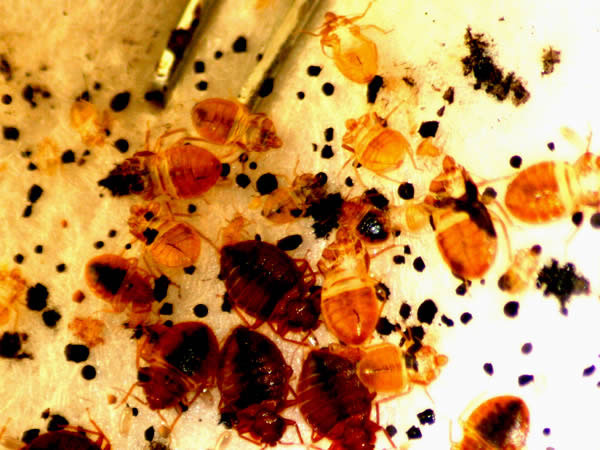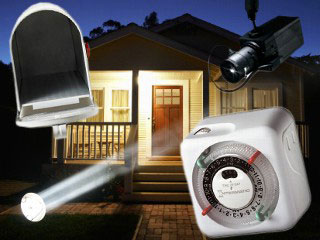Becoming eco-friendly can sometimes be a great way to save time and money. Read more on how to go about it. The daily news is full of reports about how the climate is changing constantly. Human beings have been responsible for most of the climate changes taking place. Although the problems seem immense and difficult to solve, there are ways you can do your bit for the environment. In this articleIn the houseIn the kitchenIn the gardenIn the house The easiest option to conserve energy is to replace all the incandescent bulbs in your house with Compact Fluorescent Bulbs (CFLs). They are slightly more expensive than ordinary bulbs, but they provide more light and use less energy. They also last up to 8-10 times longer than regular bulbs. Washing machines are power hungry, so always use them to wash a full load of clothes. Also, you could hang your clothes on a clothesline to dry instead of using a dryer. Clean the filters of your air conditioners as they tend to get clogged with dirt and grime easily. If they are clean, they will be able to cool the room efficiently. This will reduce their power consumption and also get you savings on your electricity bill. If you have a boiler to heat your water, you can set the temperature down to 60oC. Again, this reduces your power consumption. Do not forget to turn off your electrical appliances from the main switch when they are not in use. This prevents the loss of power that occurs when an appliance is put into standby mode. For instance, avoid switching off your TV using the remote, instead shut the main switch. In the kitchen As far as possible, buy food that is grown locally to cut down on food miles (the distance that food has to travel before it reaches your plate). Consume fruits and vegetables that are in season. You will not only save on money that is included in the transport costs, but will also be eating food that is fresh. Another thing you can do is to make a list when you go shopping for groceries and buy only as much as your family needs. If you are a non-vegetarian, try to consume less meat. Raising animals for food purposes can consume up to 2,000 times more water per kilo of meat produced, than that required for growing vegetables. Farm animals account for 10 percent of all greenhouse gas emissions, including 25 percent of methane, which is the most potent of all gases. Plus, animals eat more food than they produce in terms of meat. There are also a few simple things you can try to save on energy while cooking. Chop up your vegetables into small pieces to save time and fuel while cooking. You can save water by washing vegetables in a bowl instead of washing them under running tap water. Using lids on your vessels while cooking keeps the heat in and raises the pressure inside as well. This means you use less energy to cook your meals and they cook faster. To further save energy, you can try boiling water separately in a kettle and using this water to cook vegetables, rice, etc. This method also saves time and you only need to boil the amount of water you actually need. You can also make some adjustments to your kitchen appliances to save on your energy costs. Clean your oven and gas burners on a regular basis. This removes the grease and food particles that tend to get collected in them and also enables them to work more efficiently. Keep your oven and microwave switched off at the mains when they are not in use. Maintain the temperature of your fridge between 3 to 5oC and that of your freezer between -15 to -17oC. You can also clean the dust off the coils at the back of your fridge and save close to 30 percent on the energy it uses. In the garden Build a small catchment area and use it to collect rainwater for watering your plants. This way you can save on your water bill, and your plants will also benefit from the pure rainwater they get. You can also utilise food waste like fruit peels, leftover or spoilt food, etc. by composting them into a natural fertilizer. This is an excellent way to dispose of biological household waste and you will save money on expensive chemical fertilizers that are commercially available. While cutting grass, use a push mower instead of an electric or petrol mower. This serves a dual purpose of saving energy and will also give you a workout.
Becoming eco-friendly can sometimes be a great way to save time and money. Read more on how to go about it. The daily news is full of reports about how the climate is changing constantly. Human beings have been responsible for most of the climate changes taking place. Although the problems seem immense and difficult to solve, there are ways you can do your bit for the
environment.
In the house
The easiest option to conserve energy is to replace all the incandescent bulbs in your house with Compact Fluorescent Bulbs (CFLs). They are slightly more expensive than ordinary bulbs, but they provide more
light and use less energy. They also last up to 8-10 times longer than regular bulbs. Washing machines are power hungry, so always use them to wash a full load of clothes. Also, you could hang your clothes on a clothesline to dry instead of using a dryer.
Clean the filters of your air conditioners as they tend to get clogged with dirt and grime easily. If they are clean, they will be able to cool the room efficiently. This will reduce their power consumption and also get you savings on your electricity bill. If you have a boiler to heat your water, you can set the temperature down to 60oC. Again, this reduces your power consumption. Do not forget to turn off your electrical appliances from the main switch when they are not in use. This prevents the loss of power that occurs when an appliance is put into standby mode. For instance, avoid switching off your TV using the remote, instead shut the main switch.
In the kitchen
As far as possible, buy food that is grown locally to cut down on food miles (the distance that food has to travel before it reaches your plate). Consume
fruits and vegetables that are in season. You will not only save on money that is included in the transport costs, but will also be eating food that is fresh. Another thing you can do is to make a list when you go shopping for groceries and buy only as much as your family needs.
If you are a non-vegetarian, try to consume less meat. Raising animals for food purposes can consume up to 2,000 times more water per kilo of meat produced, than that required for growing vegetables. Farm animals account for 10 percent of all greenhouse gas emissions, including 25 percent of methane, which is the most potent of all gases. Plus, animals eat more food than they produce in terms of meat.
There are also a few simple things you can try to save on energy while
cooking. Chop up your vegetables into small pieces to save time and fuel while cooking. You can save water by washing vegetables in a bowl instead of washing them under running tap water. Using lids on your vessels while cooking keeps the heat in and raises the pressure inside as well. This means you use less energy to cook your meals and they cook faster. To further save energy, you can try boiling water separately in a kettle and using this water to cook vegetables, rice, etc. This method also saves time and you only need to boil the amount of water you actually need.
You can also make some adjustments to your kitchen appliances to save on your energy costs. Clean your oven and gas burners on a regular basis. This removes the grease and food particles that tend to get collected in them and also enables them to work more efficiently. Keep your
oven and microwave switched off at the mains when they are not in use. Maintain the temperature of your fridge between 3 to 5oC and that of your freezer between -15 to -17oC. You can also clean the dust off the coils at the back of your fridge and save close to 30 percent on the energy it uses.
In the garden
Build a small catchment area and use it to collect rainwater for watering your plants. This way you can save on your water bill, and your plants will also benefit from the pure rainwater they get. You can also utilise food waste like fruit peels, leftover or spoilt food, etc. by composting them into a natural fertilizer. This is an excellent way to dispose of biological household waste and you will save money on expensive chemical fertilizers that are commercially available. While cutting grass, use a push mower instead of an electric or petrol mower. This serves a dual purpose of saving energy and will also give you a workout.

































